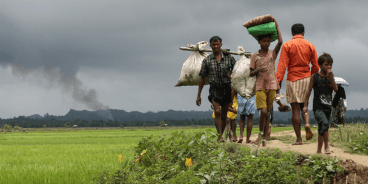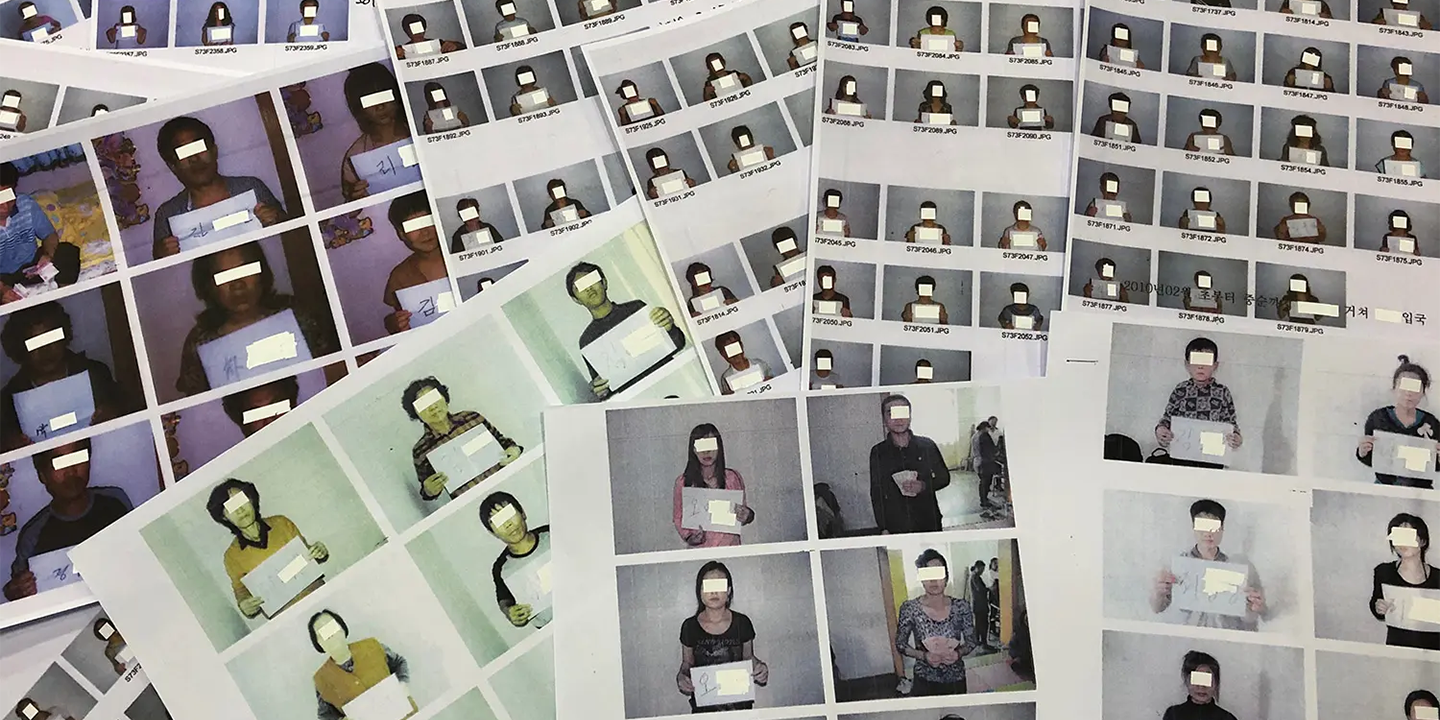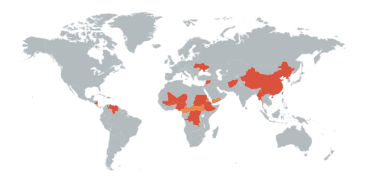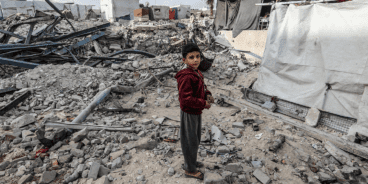

Open Joint Letter to President Xi Jinping Re: China’s Forcible Repatriation of North Korean Refugees
Dear President Xi Jinping,
We are writing to express our concern about the resumption of forcible returns of North Koreans detained in the People’s Republic of China to the Democratic People’s Republic of Korea (DPRK or North Korea), which had stopped since the start of the Covid-19 pandemic in 2020. We are concerned regarding news of North Korea’s border reopening, with the registration of around 200 athletes, coaches and officials to attend the 19th Asian Games in Hangzhou, China (23 September to 8 October 2023), and your government’s resumption of forcible repatriations of reportedly 2,000 North Koreans detained in China.
The 2014 United Nations Commission of Inquiry on human rights in the DPRK (DPRK COI) found that the North Korean government committed crimes against humanity against persons forcibly repatriated from China. According to the DPRK COI, North Koreans who flee their country are at risk of torture, sexual and gender-based violence, arbitrary detention, enforced disappearance and even execution and forced abortion and infanticide upon their forcible repatriation. However, China, which is a party to the UN Refugee Convention and Protocol and the Convention against Torture, which codify the principle of non-refoulement, continues to arbitrarily detain and hold North Korean escapees waiting for North Korea’s border opening to forcibly return them.
The DPRK COI recommended “China and other States” to “respect the principle of non-refoulement” and “abstain from forcibly repatriating any persons to the Democratic People’s Republic of Korea, unless the treatment there, as verified by international human rights monitors, markedly improves.” There has been no documentation of such improvement of treatment in North Korea. On 16 December 2013, the DPRK COI wrote a letter to Beijing summarizing its “concerns relating to China’s policy and practice of forced repatriation of DPRK citizens [including] particular concern about Chinese officials providing specific information on such persons to DPRK authorities,” and urging Beijing to “caution relevant officials that such conduct could amount to the aiding and abetting of crimes against humanity where repatriations and information exchanges are specifically directed towards or have the purpose of facilitating the commission of crimes against humanity in the DPRK.”
However, China’s policy and practice of forced repatriation of North Koreans has continued since then. During the height of the Covid-19 pandemic, the Special Rapporteur on the situation of human rights in the Democratic People’s Republic of Korea; the Working Group on Arbitrary Detention and the Special Rapporteur on torture and other cruel, inhuman or degrading treatment or punishment sent a letter to Beijing bringing to its attention information concerning “the arrest, detention and threat of repatriation of at least 1,170 individuals of the Democratic People’s Republic of Korea (DPRK) in China, who have been arrested and detained for over a year since the borders between the DPRK and China were shut in January 2020 due to COVID-19 concerns”. The letter also referred to information that “on 14 July 2021, [the Chinese government] repatriated over 50 individuals of the DPRK who had been detained over a year in Shenyang”.
At a conference entitled “Actions to Tackle Forced Repatriation of North Korean Escapees in China” held in Seoul on September 7, 2023, James Heenan, the Representative of OHCHR Seoul, stated that: “Credible reports suggest a large number of North Koreans have been reportedly detained by Chinese authorities [over the] last three years but whom the DPRK would not accept back into the country due to the border closure and other COVID-19 prevention measures. As the DPRK begins to reopen its borders, these individuals could be repatriated at any time. For those that do not wish to return, the repatriation would be forcible”.
The UN Special Procedures, including the Special Rapporteur on the situation of human rights in the Democratic People’s Republic of Korea and the Working Group on Enforced or Involuntary Disappearances, and treaty bodies, especially the Committee against Torture and Committee on the Elimination of Discrimination against Women, have repeatedly called upon China to respect the principle of non-refoulement for North Korean escapees. Various countries have made the same recommendations to China during its Universal Periodic Reviews.
China claims to address North Korean escapees in accordance with China’s domestic law, international law and humanitarian principles. However, China has failed to institute the “screening process” for North Korean asylum seekers or to provide them with “temporary identity certificates issued by public security organs” under article 46 of the Exit and Entry Administration Law, enacted in 2012.
China justifies the deportation of North Koreans under the bilateral treaties with North Korea such as the Bilateral Agreement on Mutual Cooperation for the Maintenance of State Safety and Social Order (July 1998), which provides in article 4(1) that those “who do not hold legal documents or have used a crossing point not specified in the documents will be treated as illegal border crossers” and in article 4(2) that “[i]llegal border crossers will be returned to the other side with information on their identity and specific situation.” However, such bilateral treaties cannot enable the forced return of North Korean refugees in violation of the principle of non-refoulement under article 33 of the Refugee Convention and article 3 of the Torture Convention.
Moreover, any humanitarian consideration should result in the granting of a legal status for the North Korean escapees and the stopping of their deportations back to North Korea where torture, sexual and gender-based violence, forced abortion, imprisonment in brutal labor camps and even executions await them. We note that the UN Refugee Agency in 2004 categorized North Korean escapees in China as “persons of concern” meriting humanitarian protection and proposed that China create a special humanitarian status for them to provide them with temporary documentation, access to services, and repeatedly called for protection against refoulement.
The official slogan of the 19th Asian Games Hangzhou 2022 is “Heart to Heart, @Future.” As Martin Luther King, Jr. said, we will not only win our freedom for ourselves, we will so appeal to your heart and conscience that we will win you in the process, and our victory will be a double victory. In this regard, we urge you to officially end the policy of forcible repatriation of North Korean escapees and to implement the procedure for the individualized determination of refugee status.
Thank you.
Sincerely,
Individuals
David Alton, Independent Crossbench Member of the House of Lords & Co-chair of the All Party Parliamentary Group on North Korea
Sonja Biserko, Former Commission of Inquiry (COI) member on the situation of human rights in the DPRK & current chair at the Helsinki Human Rights Committee in Serbia
Roberta Cohen, Co-Chair Emeritus of the Committee for Human Rights in North Korea (HRNK)
Marzuki Darusman, Former UN Special Rapporteur/Commission on Inquiry (COI) member on the situation of human rights in the DPRK
Lee Yanghee, Former UN Special Rapporteur on the situation of human rights in Myanmar & Former Chairperson of the UN Committee on the Rights of the Child
Tomás Ojea-Quintana, Former UN Special Rapporteur on the situation of human rights in the DPRK
Suzanne Scholte, Seoul Peace Prize Recipient & President of Defense Forum Foundation (USA)
Organizations
ACAT – Belgique (Action des Chrétiens pour l’Abolition de la Torture)
ACAT – France (Action des chrétiens pour l’abolition de la torture)
ACAT Germany (Action by Christians for the Abolition of Torture)
ACAT UK (Action by Christians for the Abolition of Torture)
Advocates for Human Rights
Anti-Death Penalty Asia Network (ADPAN)
Asian Federation Against Involuntary Disappearances (AFAD)
Asociación Pro-Búsqueda de Niñas y Niños Desaparecidos
Association of Family Members of the Disappeared
Balay Alternative Legal Advocates for Development in Mindanaw, Inc. (BALAOD Mindanaw)
Centro para la Apertura y el Desarrollo de América Latina (CADAL)
Christian Solidarity Worldwide (CSW)
Citizens’ Alliance for North Korean Human Rights (NKHR)
Commission for Disappeared and Victims of Violence (KontraS)
Committee for Human Rights in North Korea (HRNK)
Death Penalty Focus
Disarmament and Non-Violence
Families of the Disappeared (FoD)
Federal Association of Vietnamese Refugees in the Federal Republic of Germany
Free Jonas Burgos Movement
German Coalition to Abolish the Death Penalty (GCADP)
Global Centre for the Responsibility to Protect
HanVoice
Human Rights Hub
Human Rights Watch (HRW)
Human Rights Without Frontiers (HRWF)
Ikatan Keluarga Orang Hilang Indonesia (IKOHI)
International Coalition Against Enforced Disappearances (ICAED)
International Coalition to Stop Crimes against Humanity in North Korea (ICNK)
International Lesbian, Gay, Bisexual, Trans and Intersex (ILGA) Asia
Italian Federation for Human Rights (FIDU – Federazione Italiana Diritti Umani)
Judicial Reform Foundation (JRF)
Karapatan Alliance Philippines (KARAPATAN)
Korean War POW Family Association
Legal Literacy
Madres de Plaza de Mayo – Línea Fundadora
Network for North Korean Democracy and Human Rights (NKnet)Norwegian Helsinki Committee (NHC) / Norway
Non-Violence International
North Korea Freedom Coalition (NKFC)
Peace and Hope International
Safeguard Defenders
Save North Korea
Stepping Stone
Taiwan Alliance to End the Death Penalty (TAEDP)
THINK
Transitional Justice Working Group (TJWG)
UK All-Party Parliamentary Group on North Korea
Viet Tan
World Coalition Against the Death Penalty (WCADP)
*Signature organizations and individuals (as of 26 September 2023):
Related Content


R2P Monitor, Issue 71, 1 December 2024
